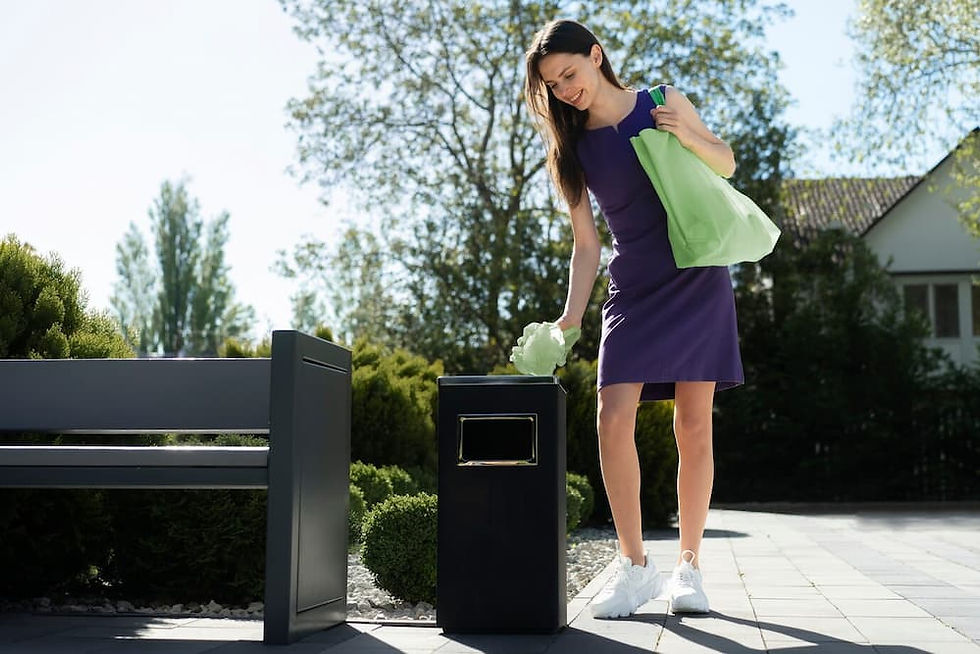On Skip Bins: Considering The Environmental Impact And Promoting Sustainable Practices
- Evan Javier
- Sep 11, 2024
- 3 min read
Have you ever wondered about the journey your rubbish takes once it’s been swept away by garbage truck or tossed in a skip bin? Do you pause to consider the environmental impact of our waste generation and management systems? Amidst the ever-growing concerns of climate change, we can no longer turn a blind eye to these questions. In this lengthy, eye-opening piece, we're exploring the environmental impact of the ubiquitous skip bin hire services. The skip bin, a practical yet often overlooked part of our daily waste management system, has a story to tell. In the heart of understanding this, we delve into the facts, impacts, and innovative solutions that could change the way we view our waste.

Understanding Skip Bin Hire Services
Skip bins are an integral part of construction sites, home renovations, and large-scale cleanups. These large, industrial-sized bins are designed to accommodate large volumes of waste, and then efficiently transported to waste management facilities, where the process of waste segregation and recycling begins. Understanding this process is key to deciphering the environmental implications of skip bin hire services.
Environmental Impact of Skip Bin Services
Despite their efficiency in waste collection, skip bins contribute significantly to environmental pollution. Especially when not managed properly, waste from skip bins can leech harmful chemicals into the ground, contaminating our water supply and harming eco-systems. On top of this, the carbon footprint of transporting massive volumes of waste can be significant, contributing to global greenhouse emissions.
Debunking Common Misconceptions
Contrary to popular belief, not all materials thrown into skip bins get recycled, let alone composted. Much of it ends up in landfills, contributing to soil degradation and methane gas emissions. The 'out of sight, out of mind' mentality is prevalent, and people need education on proper waste segregation and understanding the importance of reducing and reusing before resorting to recycling.
The Upside: Practices Promoting Sustainability
In contrast to their negative implications, skip bin hire services also have the potential to promote sustainable practices. When managed and operated responsibly, they can be instrumental in waste segregation, recycling, and recovery. Moreover, innovative services are arising which offer eco-friendly skip bins, some even repurposing reclaimed materials to construct the bins themselves.
Driving Change: Government Policies and Public Participation
Government policies play a major role in driving sustainable practices in waste management. Legislation can enforce stricter regulations on waste disposal and promote recycling and composting. Meanwhile, public participation is the other half of the solution. By making conscious decisions in waste disposal and choosing eco-friendly skip bin services, we can significantly reduce our environmental impact.
The Future of Skip Bin Hire Services
As we move towards a more sustainable future, the role of skip bin services is changing. Innovative companies are looking at ways to reduce environmental impact through eco-friendly practices like using electric vehicles for transport, embracing technologies to sort and recycle waste, and providing incentives for customers who segregate waste effectively.
Conclusion
In sum, while we may not immediately associate skip bins with environmental discussions, their day-to-day use and primarily their misuse underlines the need to bring them to the spotlight of our sustainability dialogue. Through a combination of public awareness, legislation, and innovation in the industry, we can minimize the environmental impact of skip bin hire services. Changing the way we manage our waste is paramount in our journey towards sustainability. Our decisions today, no matter how mundane they might seem, can have tremendous impact on both our wellbeing and that of our planet.




Comments